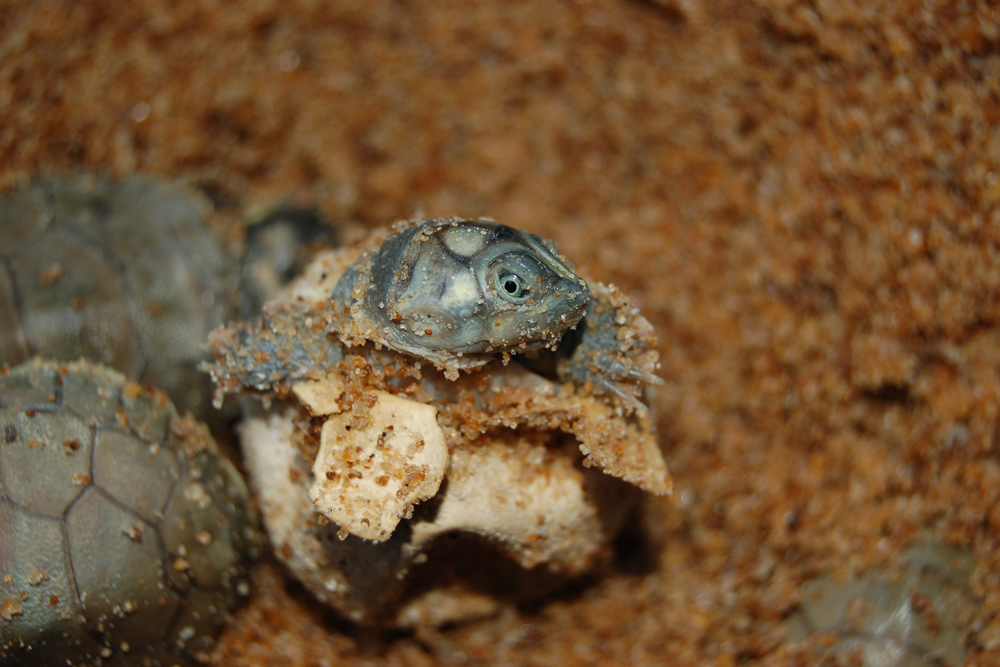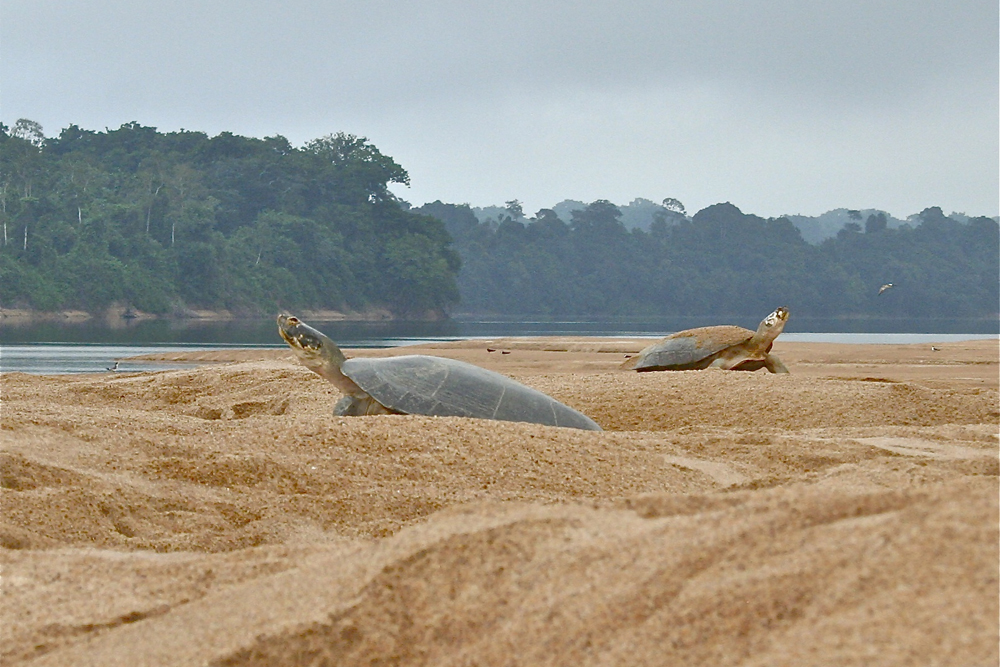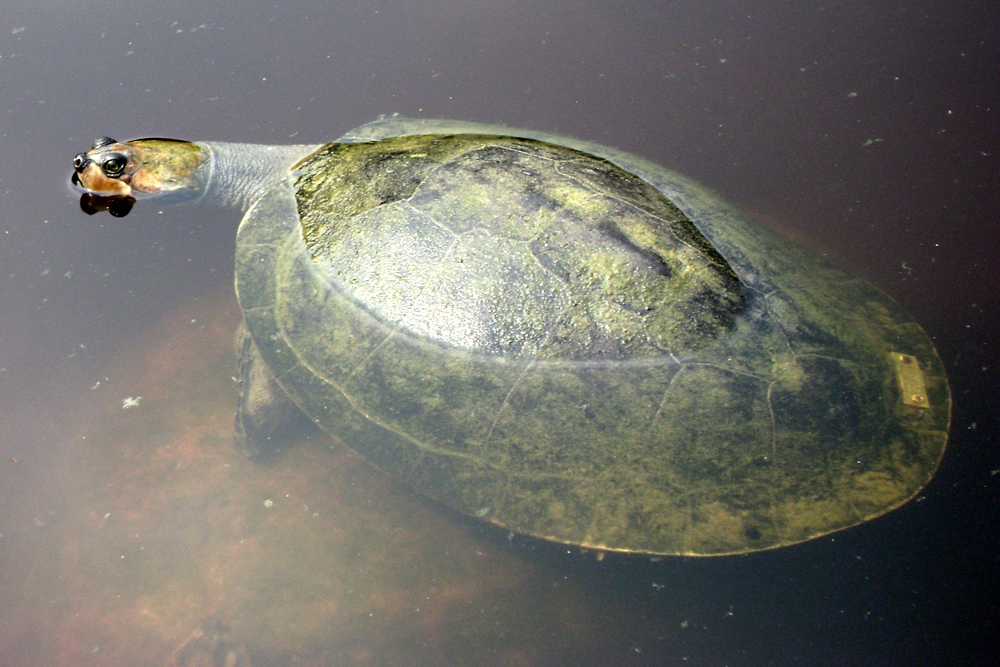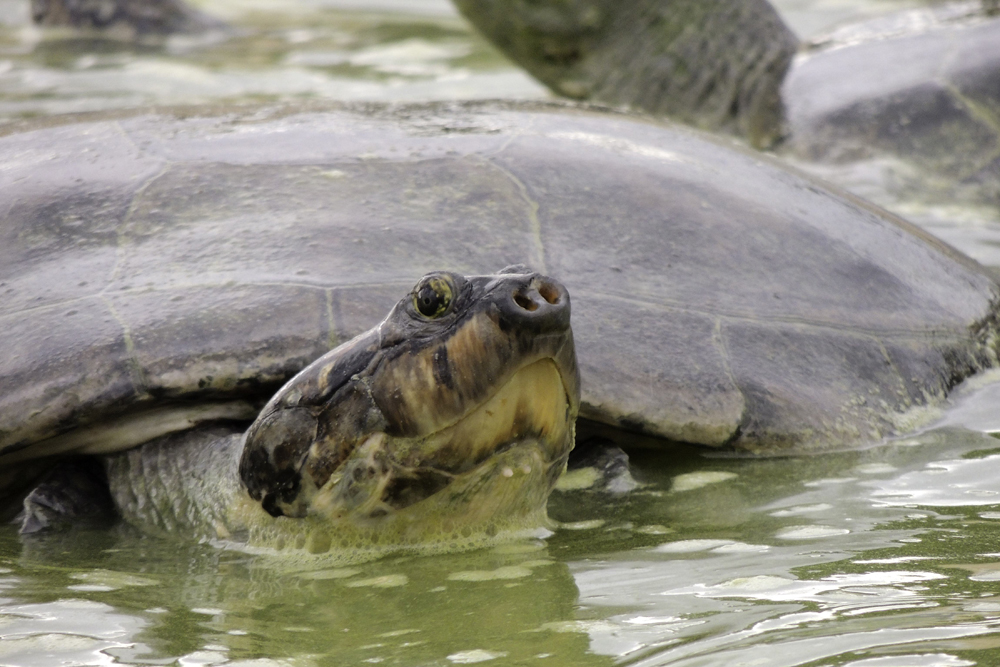
Amazon Turtles 'Talk' to Their Tots

Brian Horne is coordinator of turtle conservation for the Wildlife Conservation Society (WCS). WCS manages the Bronx Zoo, the New York Aquarium and other sites, in addition to its global conservation work. Horne contributed this article to Live Science's Expert Voices: Op-Ed & Insights.
Turtles are popularly perceived as slow, lumbering animals, typically found alone and seemingly unaware of their surroundings. The spectacle of marine turtles hauling themselves out of the surf to lay a hundred or so eggs ends with an image of them returning to the ocean, never to see their offspring again.
The concept of a turtle caring for and communicating with a hatchling perhaps one hundredth her size is the stuff of children's stories and films like "Finding Nemo."
Yet the assumption that all turtles leave their young to fend for themselves may not be the case with every species. A team of researchers in Brazil recently found that indeed some turtles do "talk," and females are at least associating with hatchlings after they leave the nest — and even as the hatchlings travel hundreds of kilometers along the Amazon.
Turtle talk
The mewling of newborn kittens is a familiar sound, but now we find that giant South American river turtle hatchlings make sounds before they exit their eggs, and continue to do so even as they clamber out of the nest chamber onto the river beach. The underwater vocalizations of the responding adult turtles may likewise help the newly-hatched turtles find their way once they are in the water .
Scientists Camila Ferrara of the WCS and Dick Vogt of the Instituto Nacional de Pesquisas de Amazônia have scientifically documented turtles producing a limited repertoire of clicks and clucks at very low frequencies. By using low frequencies, the turtles are able to produce sounds that travel long distances underwater.
Get the world’s most fascinating discoveries delivered straight to your inbox.
Serving the species
Turtle conservation for many decades has been focused on how to best produce the most hatchling turtles with little thought about relationships between the hatchlings and the parents.
Conservationists have at times moved nests many miles from their original location in hopes of higher hatch rates. At other times, they have kept hatchlings in captivity for short periods of time so that they can grow to a size that minimizes their risks of being eaten by a predator.
But what these biologists haven't considered is how these well-intended actions may disrupt important audible communication cues, as the recent findings on the surprising behavioral complexity of the giant South American river turtle may suggest. Perhaps with this species, environmental factors necessitate parental guidance.
Thousands of miles long and in places miles across, the Amazon is a massive river on a scale that is hard to grasp. Imagine being a hatchling turtle weighing just a few ounces and confronting that enormous expanse alone.
If the research done by Ferrara and Vogt holds true, it appears that mother turtles are actually waiting for the eggs to hatch before guiding the tiny hatchlings into rich foraging areas. This unprecedented discovery may greatly shape turtle conservation around the globe.
Saving social turtles
In 2011, WCS worked with the Turtle Survival Coalition to document the 25 most endangered turtle species on Earth. Many of my current conservation activities occur in Asia, where large river turtle populations have been decimated — in some cases down to just a handful of adult animals remaining in the wild. My colleagues and I have relied heavily on head-starting — incubating eggs and hatching turtles in captivity before their release into the wild — to boost populations and prevent individual species from going extinct.
What we have not been doing is investigating the importance of social behavior in the survivorship of the head-started turtles once they are released back into the wild. [Shell Shock: 25 Turtle Species in Terrible Trouble ]
We always assumed we were truly giving turtles a "head-start" in their effort to survive because predation appeared to be the greatest challenge to their conservation. But what if by head-starting the turtles, we have been preventing them from learning important migratory behaviors from the adult population?
How can we rectify this? Do we need to play underwater recordings of adults during the time the turtles are being raised? Do we need to train the turtles to follow recordings to important foraging areas?
Through the use of a hydrophone listening instrument, I hope to begin unraveling this latest mystery in my next research project. Only time will tell what precisely is taking place. But one thing we know already: our understanding of how turtles survive in their respective environments, and how hatchlings may benefit from parental care, may never be the same again.
Follow all of the Expert Voices issues and debates — and become part of the discussion — on Facebook, Twitterand Google+. The views expressed are those of the author and do not necessarily reflect the views of the publisher. This version of the article was originally published on Live Science.
 Live Science Plus
Live Science Plus








